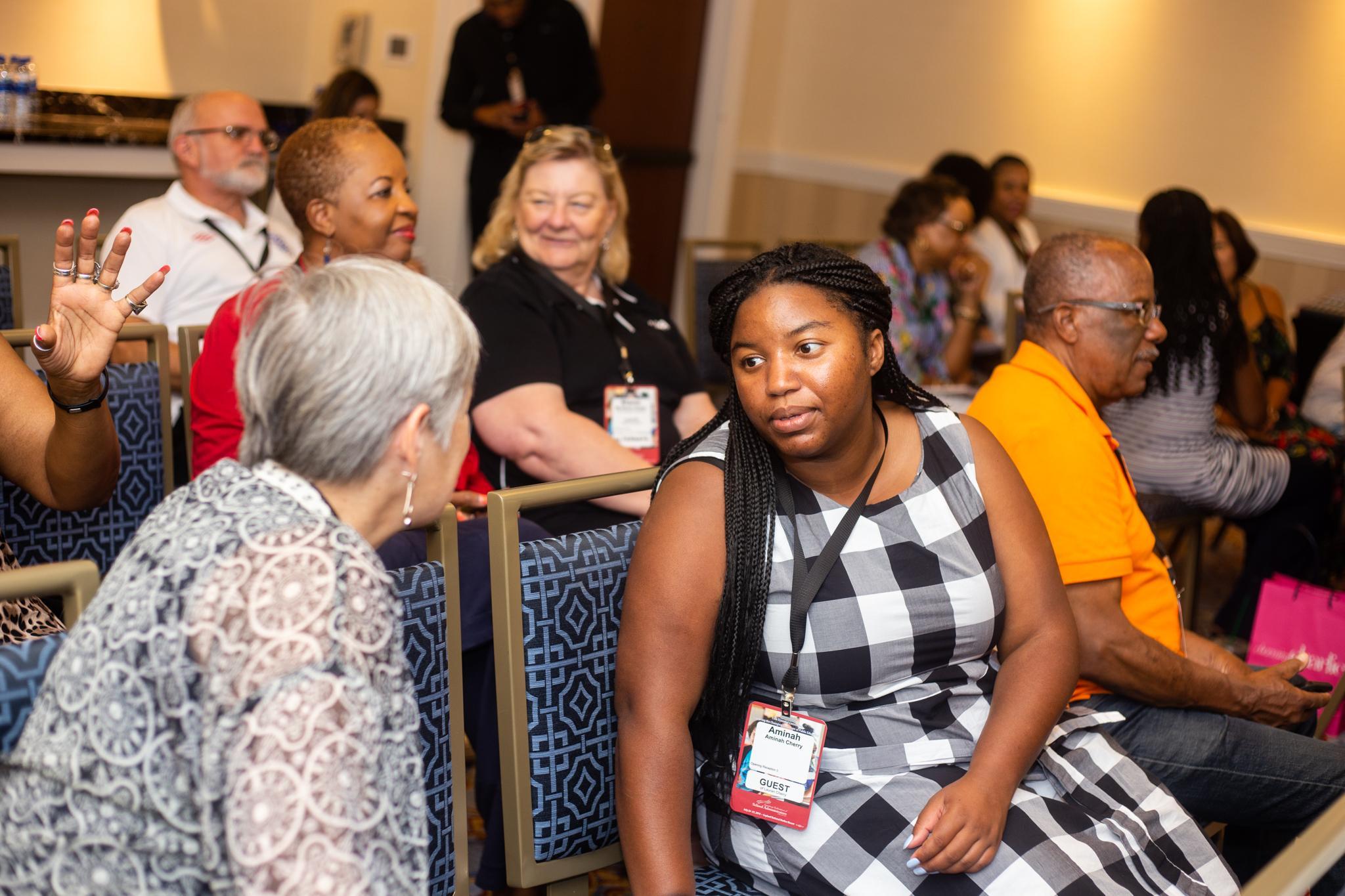Strategies for providing a safe and secure learning environment and the challenges school leaders are facing currently were discussed Thursday during a pre-conference workshop prior to the official opening of AFSAs Triennial Convention.
The panel was facilitated by Dr. David Dzidzienyo, political director for the DC metropolitan Federation of Labor president of Petworth Action Committee Civic Association. During his 20 years as a community organizer Dr. Dzidzienyo has committed himself to bridging the gap between the labor movement and the community. He has worked with many political officials and community leaders in an effort to galvanize support for various community initiatives.
Dr. Dzidzienyo was joined in the discussion by Edward Burroughs, a 10-year member of the Prince Georges Maryland School Board, and Mary Norris, a former police officer who is head of school security in Prince Georges County.
Dr. Dzidzienyo emphasized that its crucial for school leaders to establish working relationships with elected officials in order to impress upon them how important security practices are in their schools, as well as the critical need for wrap-around resources that can help minimize conflict.
Mary Norris, a former police officer, who is currently in charge of School Security in Prince Georges County, noted that there security investigators in the schools, as well as security officers. And there are cameras in all of the schools that are being updated all the time. For safetys sake, everyone who enters the schools is subject to identification, and drills are conducted for fires, as well as lock-down drills so students know what to do in case of a violent event.
Security assistants have a strong presence in the schools at all times, especially in areas that may not be covered by cameras. There are instances when parents need to be contacted concerning any threatening situation. Every effort is made to ensure that students feel comfortable approaching the security personnel with any concerns they may have.
Asked by one conference participant about her view of arming the education staff, Ms. Norris replied, I have no problem with it in principle, but the proper training has to be there, especially about creating an understanding of circumstances when security is armed in the school.
Moreover, she said, The education staff should feel comfortable with the security staff thats there, and not have to put themselves in that position.
Mr. Burroughs offered that the elementary schools would tell you they need more security, noting that some schools are so large that its virtually impossible to cover all access and egress.
When you look at school shootings or fights, he suggested, its too late. We need to inform children in the elementary of how to deal with such situations, or have better information about students, and determine how we support students whom we see waving red flags before they get to high school.
Asked what single thing could be done to improve security, Ms. Norris said that she would favor creating a confidential line directly to school security that students could reach from their cell phones basically secure that they are communicating in confidence.
Dr. Dzidzienyo suggested to conference participants that they develop a relationship with their state Attorneys General. If you do, he said, youll get a quick sense as to whether or not theyll be advocates [for more resourceful approaches].
Its very important, he said, to develop the political and administrative relationships that allow you to get around bureaucratic red tape in order to go the extra mile to ensure that a troubled or homeless child gets the support that they need, because they can help you clear the way to save that childs life.
Ms. Norris noted that Prince Georges has a diversion program in which troubled students learn to understand better the nature of their misbehavior, some even participating in mock trials that necessarily changesthe perspective from which they look at and judge their own behavior.
We have to reach out to students, she said. We need to be present, adding that the diversion program requires the involvement of the parent(s). They need to understand what we see that they dont see.
Ed Burroughs averred that rapport with authority figures has to be a top priority, or they may be viewed as a threat. Ms. Norris added that because her security personnel have established such rapport, There are students who will come to us and thank us, because they know were there to protect them.
Dr. Dzidzienyo spoke of a senior security guard who had developed such positive rapport with a female student that toward the end of the year she came to him and opened up about being molested at home.
But, he added parent accountability is essential. We need to make sure that the parents understand as well as the students what the consequences of the kids actions are.
There was a uniform sense among participants that a major challenge they face is a lack of parental accountability. One Chicago principal of 14 years averred that more parents showed up to retrieve seized cell phones than showed up for discussing report cards.

